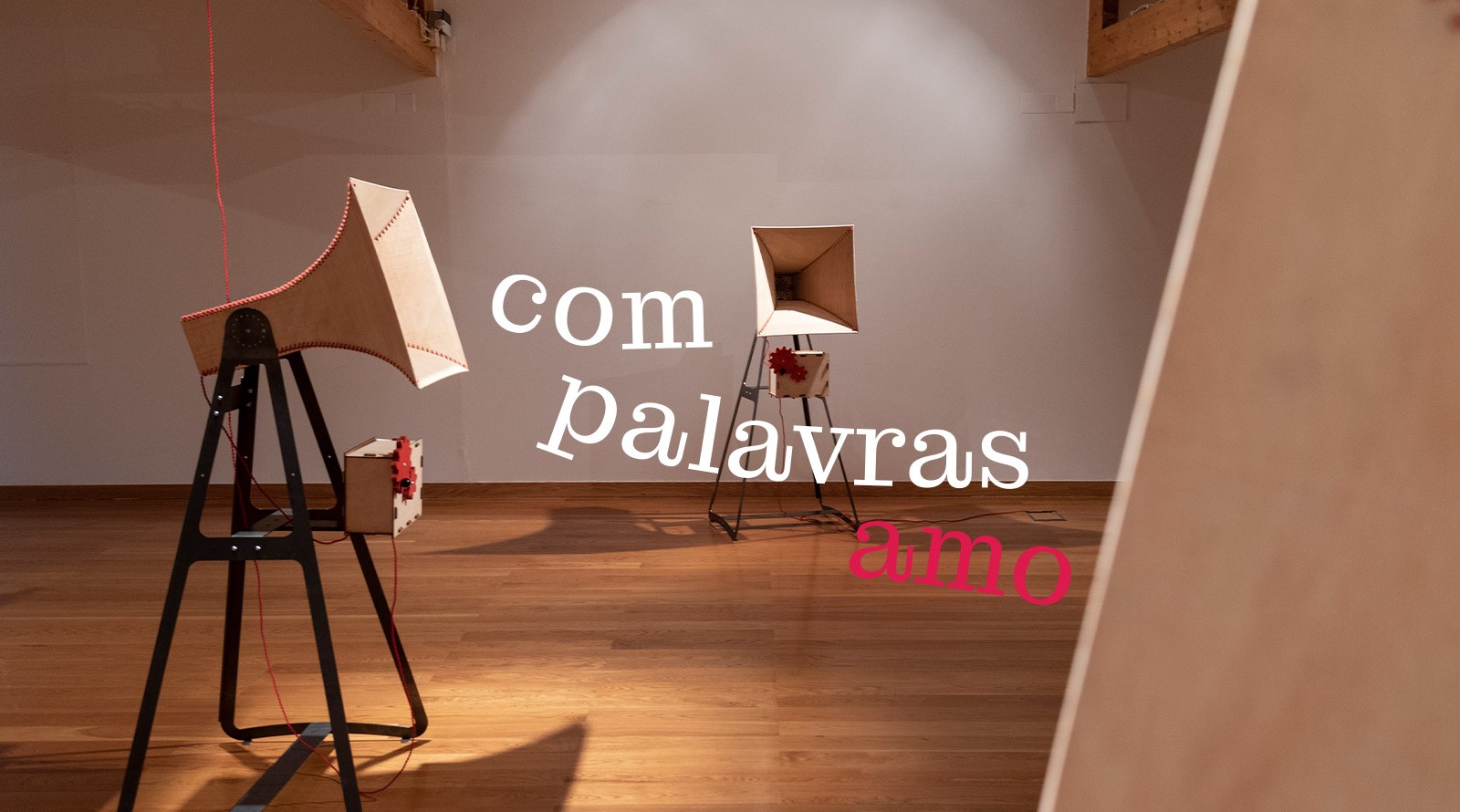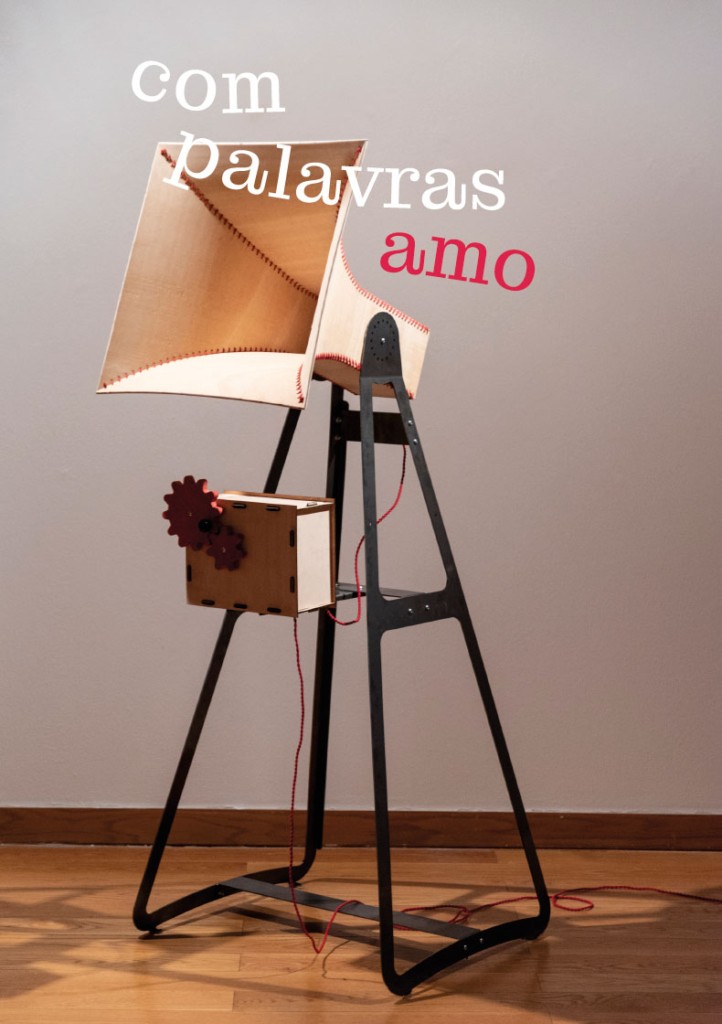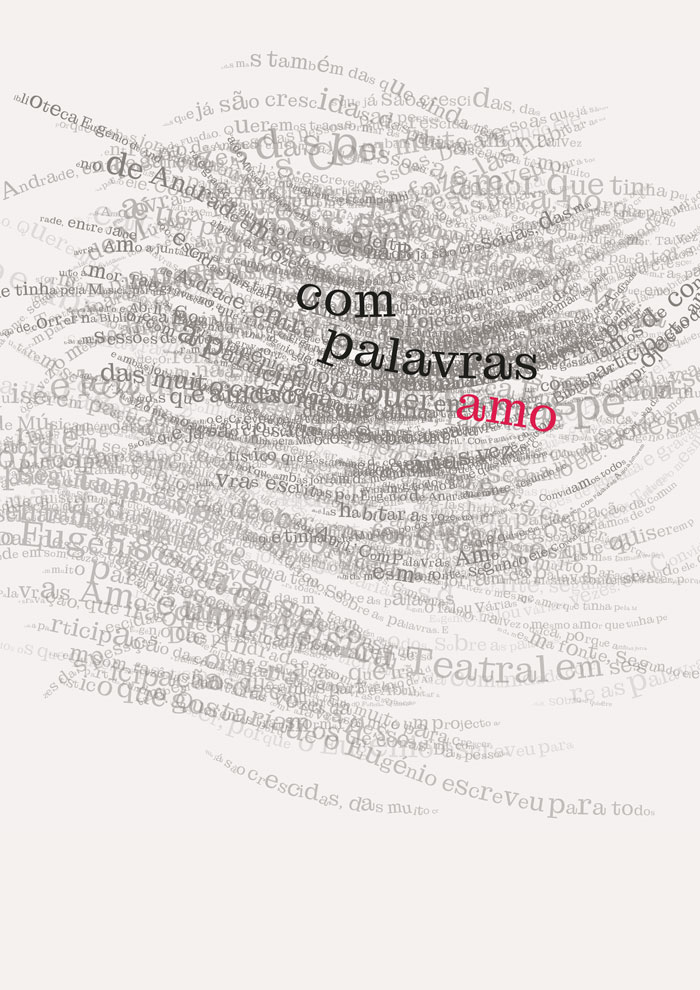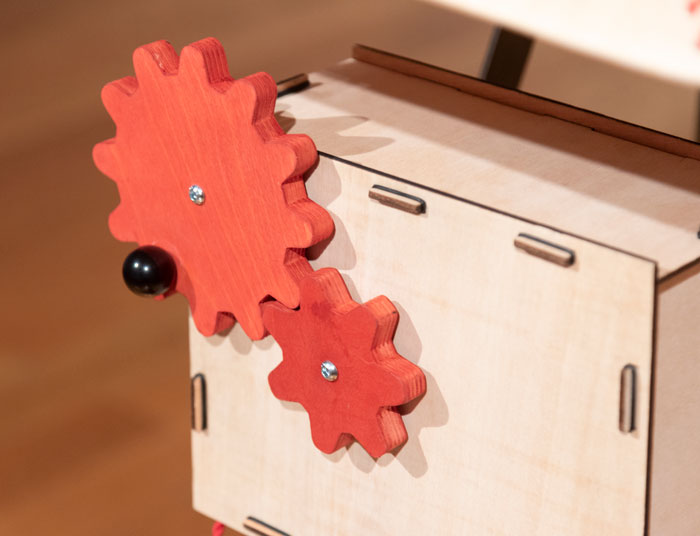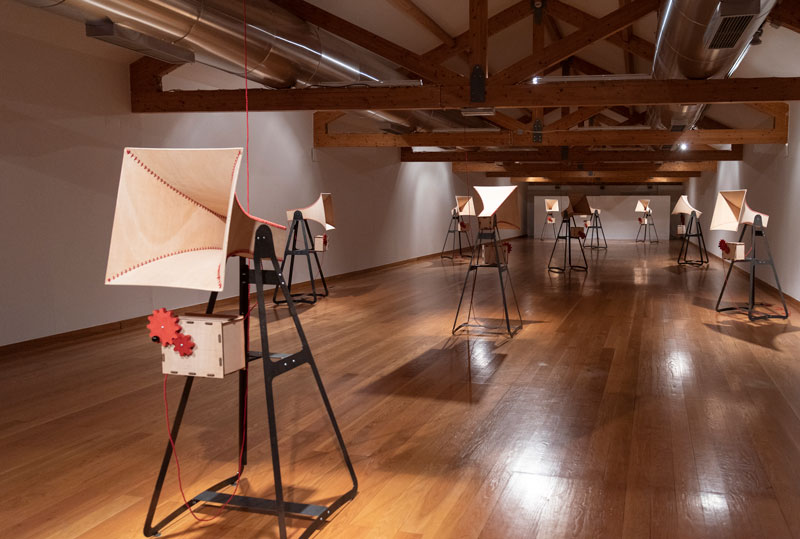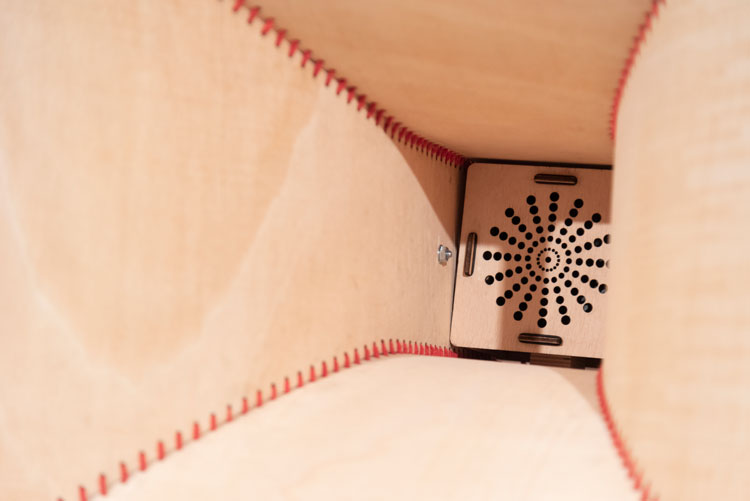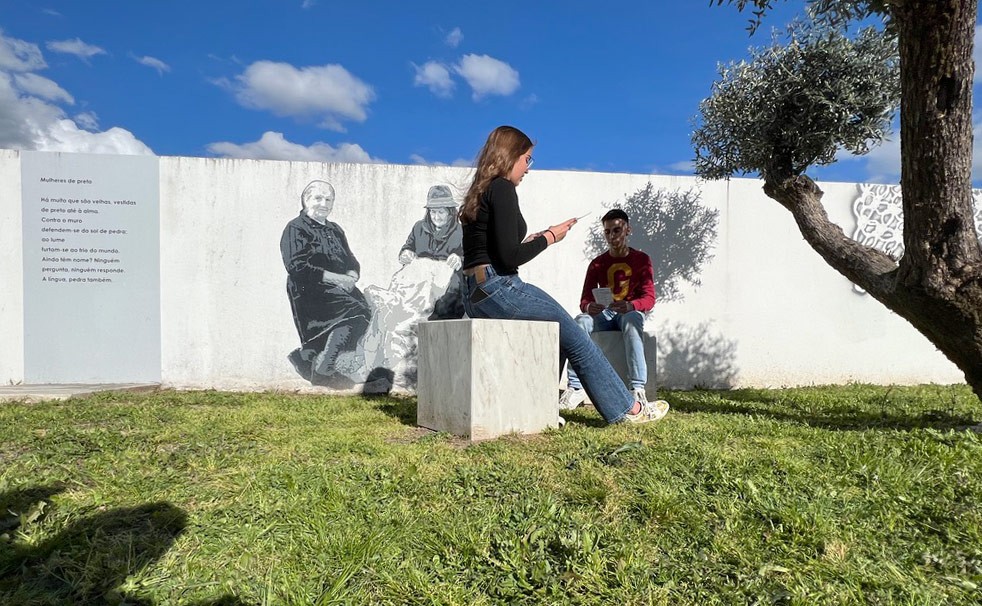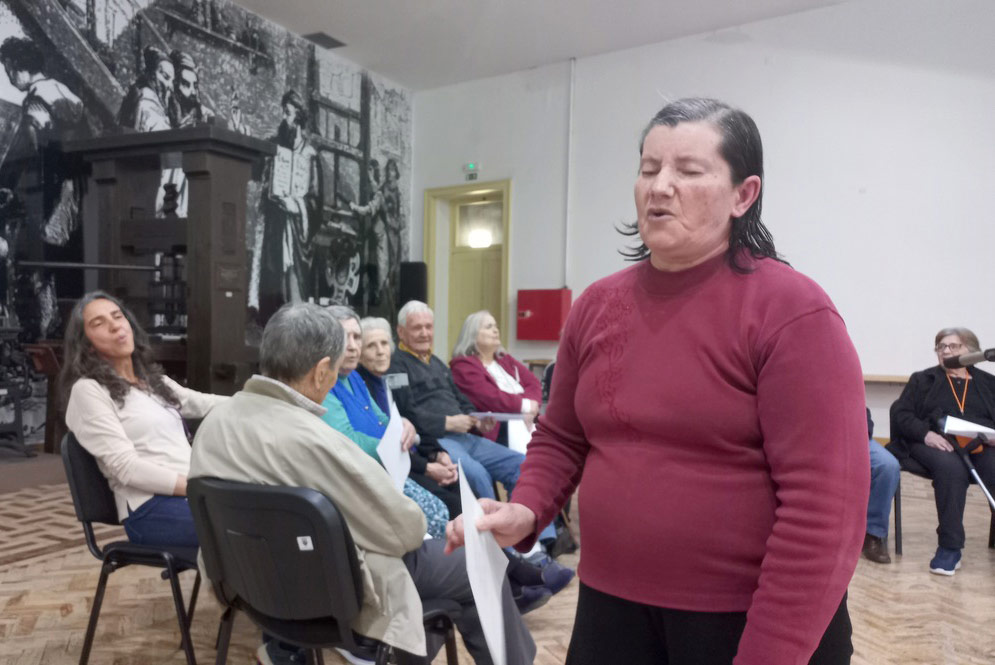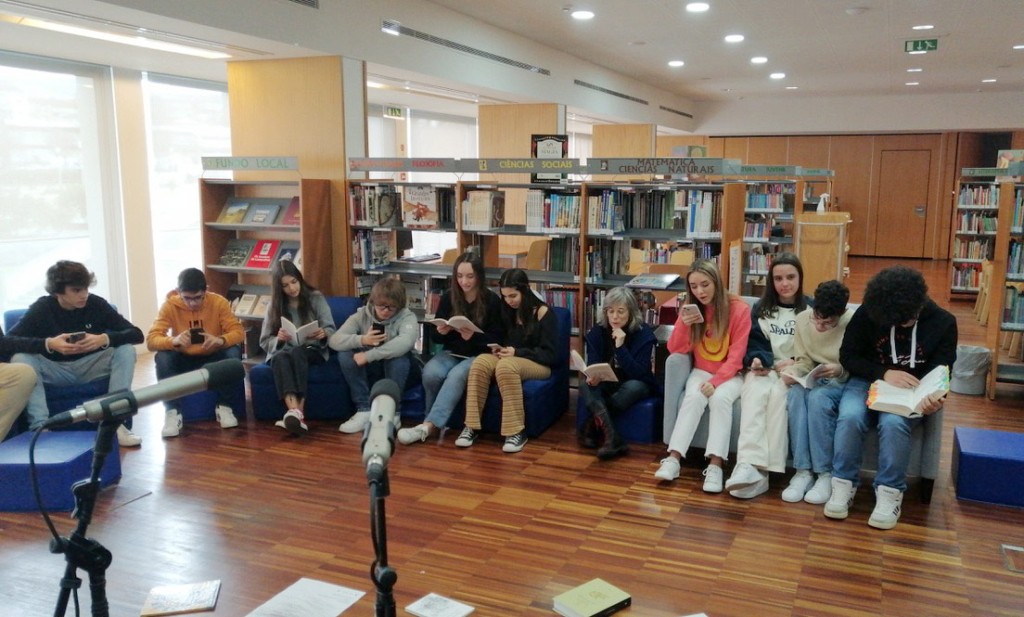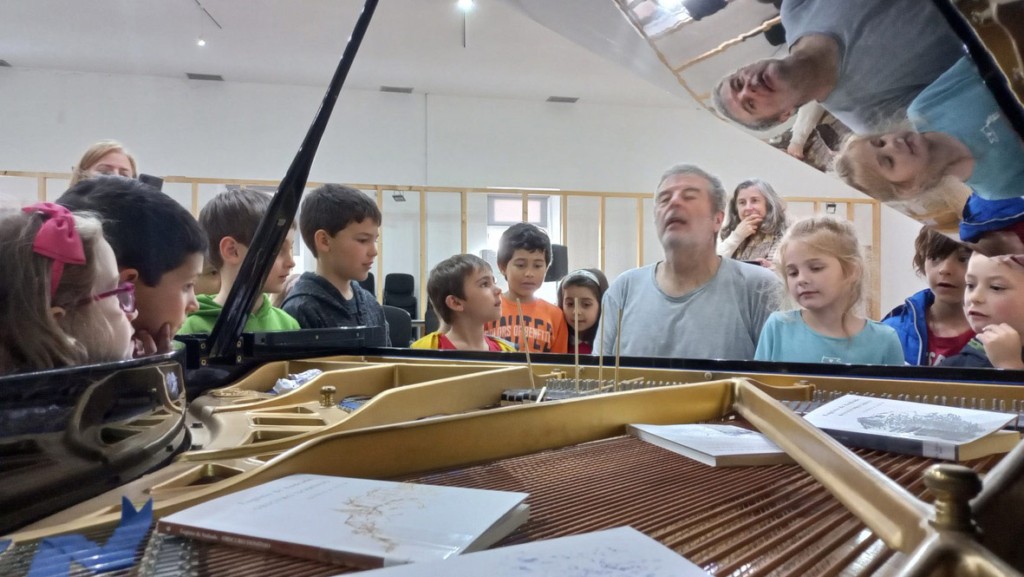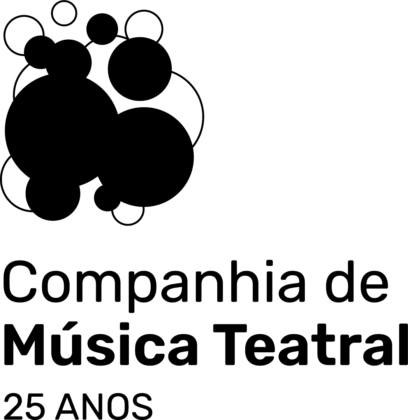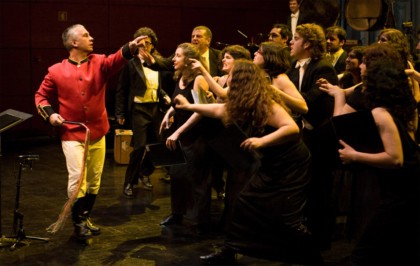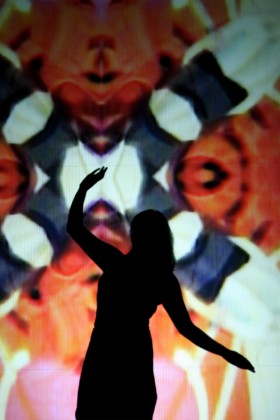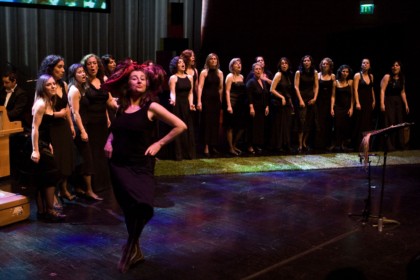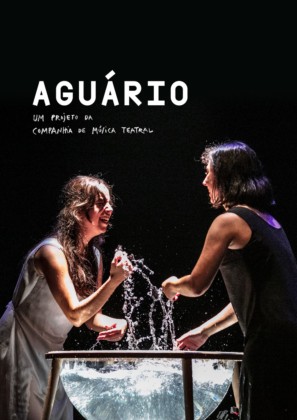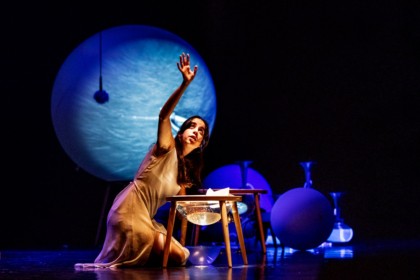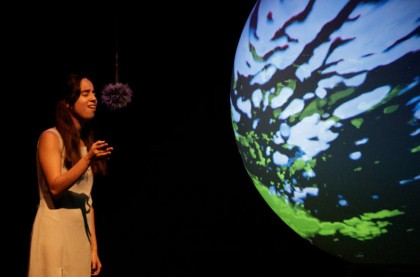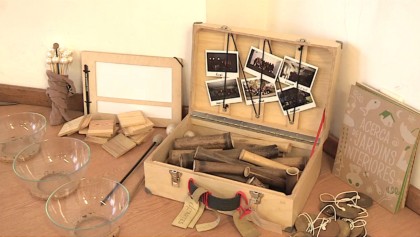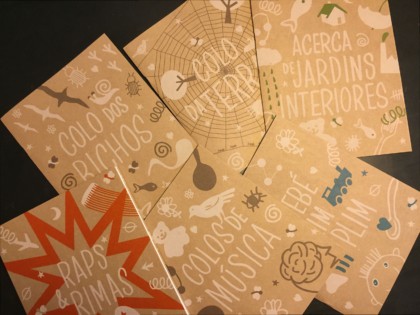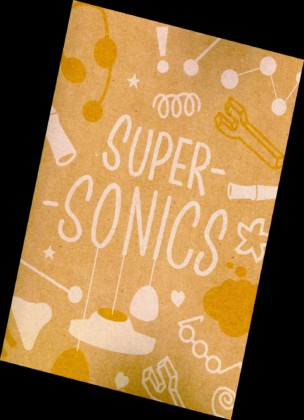Com Palavras Amo is an invitation to explore “listening landscapes” built from encounters between the poetry of Eugénio de Andrade and the voices of those who wanted to be its home.
During the year in which the centenary of his birth was celebrated, and over the course of several months, we created opportunities to know, experience, discover, say, listen to the words of the poet. We worked with very diverse people and fell in love, again, with the Music of his words, which we knew in silence, now with colors and tones of “common people”. The Biblioteca Municipal Eugénio de Andrade was the “home” and “mother” of many sessions with “communities” in Fundão, but the Poet’s “voice” took us to other places as well. About the words. Eugénio spoke several times. With love. Perhaps the same love he had for Music, because both flow from the same source, according to him.
In an advanced phase of the project, we developed ways to share the results of this participatory process, namely through an installation, which is, therefore, an exercise in transforming written words into “soundscapes” that are revealed when the public activates a set of “sound sculptures” that make the space to resound. The installation invites wandering through the space, discovering sounds that are sometimes unexpected and where words “dilute” in a “sonic magma”, at other times reappearing with the clarity and transparency of fragile voices, sometimes in languages and dialects that seem to accentuate even more the initial musicality. The sound-sculptures of Com Palavras Amo are organized as a “choir or chamber orchestra”, in which each of the machine-instruments has its identity but also its “personality” and its “mystery”: it is not possible to repeat the same experience twice and the discovery and exploration of the installation invites the individual listening of each “sound-sculpture” but also produces an action on the soundscape of the space in which it is located, a kind of “ensemble music”. Additionally, the “recorded words” were made available “online” to allow for another form of “listening”, more focused on the details of the voices, their colors and prosody, on the original words of the poet and the multiple forms and sounds they acquire when they inhabit the body of those who say them, in the “parallel stories” the participant told us, in the “transformation” processes that make, in many cases, “sound”, more than “semantics”, to be the most significant dimension of what it is felt. Voices of grown-up people, very grown-up people, but also those who still have a lot to grow up with, because Eugénio wrote for everyone.
The constellation Com Palavras Amo also includes the possibility of continuing the participatory process, providing opportunities to “say”, “explore”, “listen”, “co-create” in creative workshops inspired by the experiences that gave rise to the sound material of the installation and online publication. The workshops are a way of “knowing-saying-listening” the poetry of Eugénio de Andrade, but above all, of experiencing the countless possibilities of giving “body” to the written word. They include the recording of new “soundscapes” that are later incorporated into the installation and online publication.
Finally, the constellation also provides for a conference that seeks to contextualize and “explain” the work that can be “seen-heard” in previous experiences and give clues so that educators and artists can build their paths of discovery and ways of interacting with others through the “word”. Our relationship with the Poet dates back to the time when we still didn’t know that birds also inhabited his music: Uma Prenda Para Eugénio de Andrade (1999) was one of the first CMT projects and what we discovered and learned made us want to go further. The “return” to Eugénio de Andrade is also an opportunity to share a fertile path of relationship with other words, created by us and used in various projects and published in various ways. Com Palavras Amo makes us feel “back home” but with more open eyes and ears and with many stories to tell.
